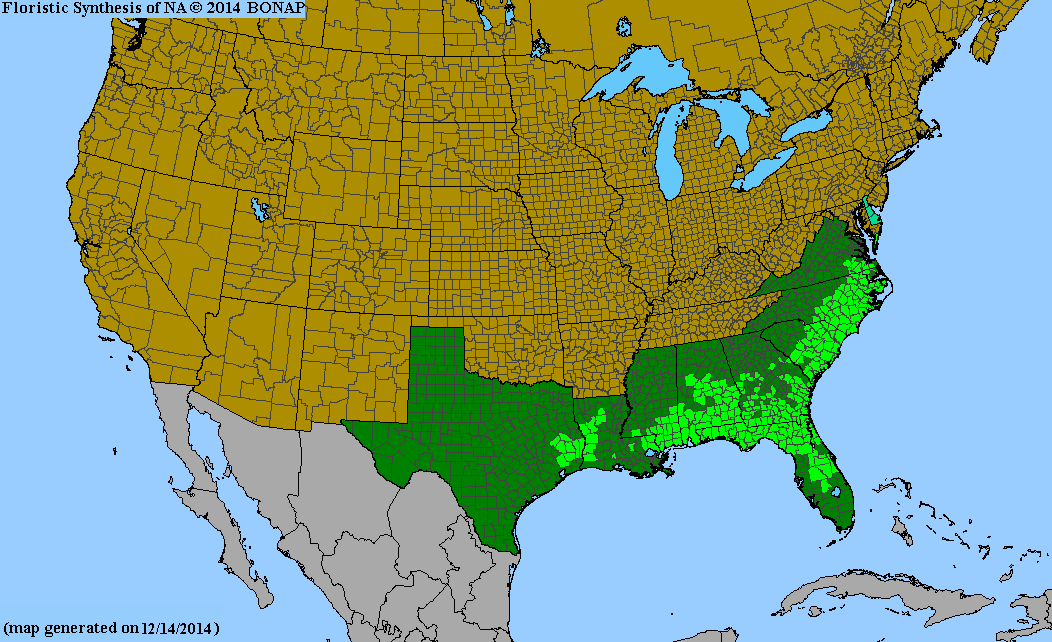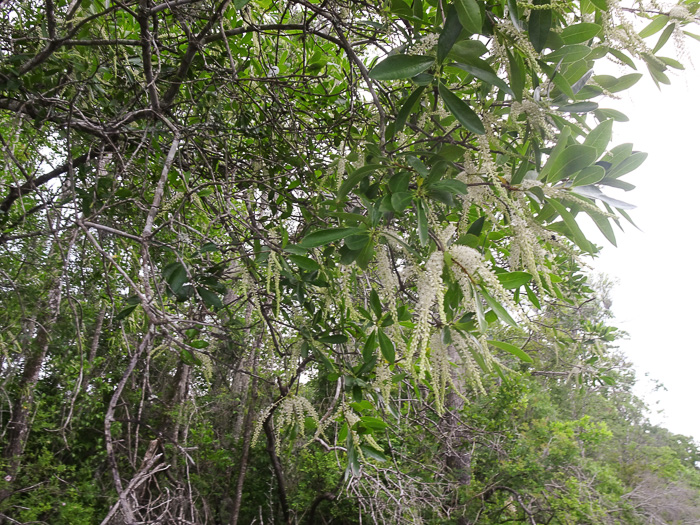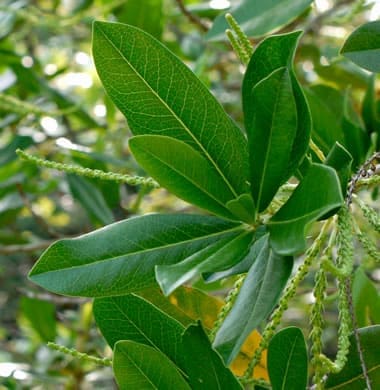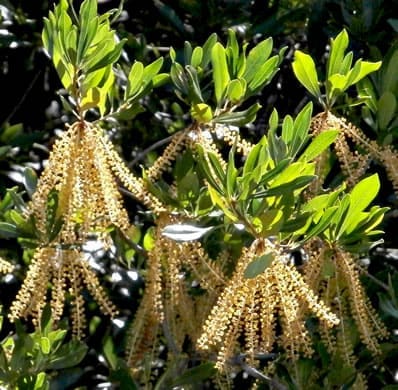Cyrillaceae
swamp titi
Cyrilla racemiflora
Synonyms
Cyrilla racemiflora var. racemiflora
Cyrilla racemiflora var. subglobosa
Other Common Names
titi, leatherwood, black titi, he-huckleberry
Plant Type
Small Tree/Large Shrub (10-25 ft)
Life Cycle
Perennial
Typical Size
8-30 ft. tall
10-15 ft. wide
Tolerant of
Occasional Flooding
Inolerant of
Dry Soil, Poorly Drained Soil
Propagation
By seed, By cutting, By division
Plant Propagation Notes
Seeds do not require pretreatment. Softwood cuttings should be taken in early summer. Root cuttings should be taken in fall or winter.
Plant Planting Notes
Provide up to 15 ft spacing or suckers will have to be trimmed regularly.
Plants/Diseases
No significant disease or pest issues.
Wildlife Benefits
Nectar/pollen source for pollinating insects, Fruit/seeds for birds
Leaves
Leaves alternate, oblanceolate to ovate with entire margins.
Flowers
Tiny white and fragrant flowers arranged on racemes.
Fruit
Capsule.
Bark
Young bark is smooth and light brown. Matures to gray and exfoliating.
Toxicity
No known toxicity.

USDA Hardiness Zones
5, 6, 7, 8, 9, 10
Light Exposure
Full Sun, Part Sun/Shade
Soil Moisture
Moist
Soil Drainage
Well-drained
Soil pH
Acidic (less than 6.0)
Native in South Carolina?
Yes
Plant Native Habitat
Swamps, pocosins, pong margins, streambanks, and other open, wet habitats.
Global Conservation Status (NatureServe)
Secure (G5)
Federal Conservation Status (USFWS)
Not Listed
Distribution Notes
Common in the South Carolina coastal plain and sandhills. Rare in the piedmont. Absent from the mountains.



